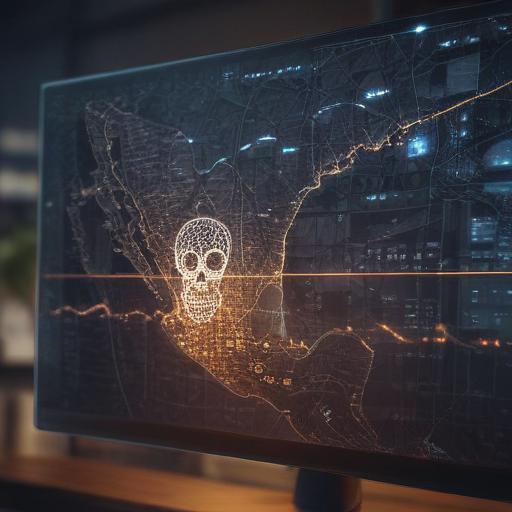A hacker who worked for the Sinaloa Cartel reportedly tracked FBI informants using surveillance cameras in Mexico City, according to an audit by the Inspector General of the Department of Justice regarding efforts to mitigate the impacts of ubiquitous technical surveillance.
The report reveals that in 2018, during the FBI’s investigation into the drug cartel led by Joaquín “El Chapo” Guzmán, an individual linked to the cartel contacted an FBI agent. The Sinaloa Cartel, once headed by El Chapo, who was extradited to the United States in 2017 and sentenced to life plus 30 years in 2019, has been highlighted for employing advanced surveillance tactics.
The audit indicates that the cartel had engaged a hacker who offered various services related to mobile phone and electronic device exploration. This hacker was reported to have observed individuals entering and exiting the U.S. Embassy in Mexico City and identified persons of interest for the cartel. This included the Deputy Legal Attaché of the FBI (ALA T), whose mobile phone number the hacker accessed to obtain call records and associated geolocation data.
According to the FBI, the hacker utilized the city’s camera system to monitor the Deputy Legal Attaché throughout the city and determine the individuals with whom he met. This information was allegedly used by the cartel to threaten and, in some cases, murder potential sources or cooperating witnesses.
The audit report did not disclose the identities of the hacker, the legal attaché, or the victims involved. It detailed that the FBI’s definition of Ubiquitous Technical Surveillance (UTS) encompasses the widespread collection of data and analytical methodologies aimed at connecting individuals with objects, events, or locations.
Despite these disturbing revelations, the report emphasizes that the FBI is working on improving its strategies against the threats posed by UTS. The Inspector General made four recommendations for the FBI to enhance its management regarding UTS threats, which the FBI has agreed to implement, indicating a commitment to increased vigilance and adaptability.
Overall, while the situation reveals serious vulnerabilities in counter-surveillance measures, the positive takeaway is that efforts are being made to address these challenges comprehensively. The FBI’s willingness to enhance training and strategy demonstrates a proactive approach toward protecting their operations and personnel from similar threats in the future.
